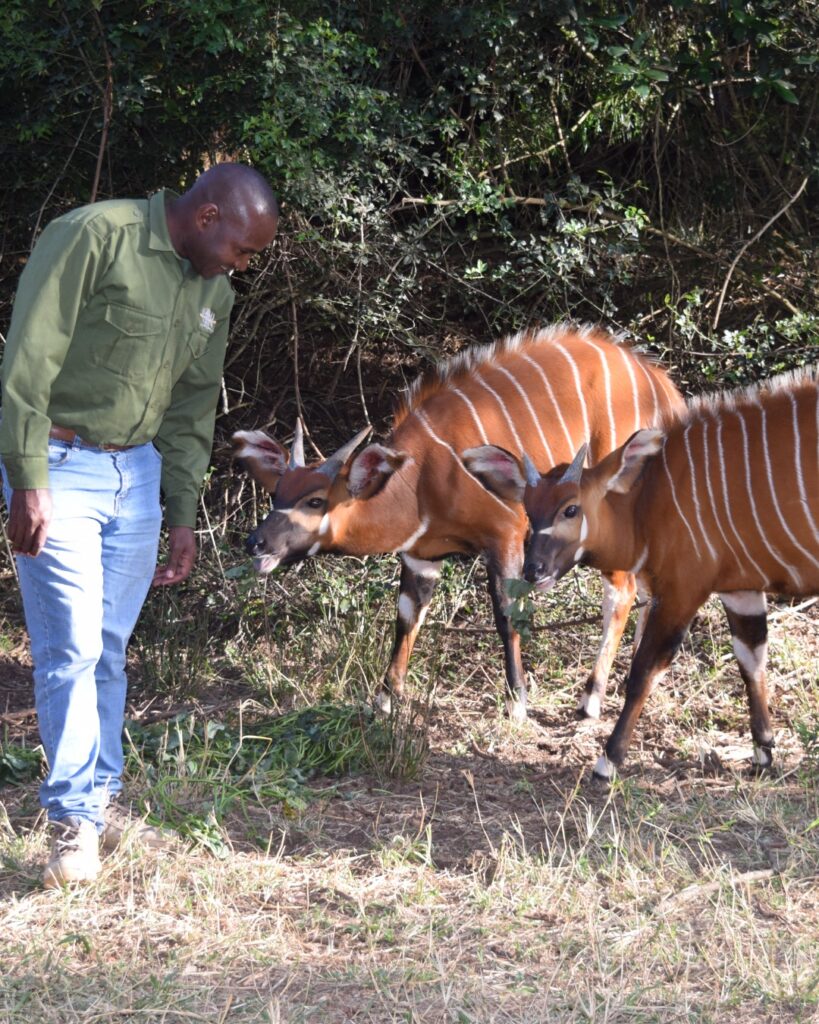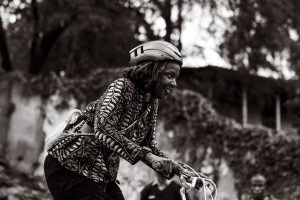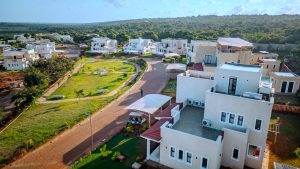Mount Kenya Wildlife Conservancy Celebrates 20 Years of Wildlife Conservation

Nanyuki, 5th March 2024. The Mount Kenya Wildlife Conservancy is celebrating 20 years of conservation this year.
The Conservancy has worked to protect endangered species and their habitats, with significant achievements. Focus has been on the endangered Mountain Bongo Antelope through a recovery and rewilding program which has been outstanding.
2024 marks 20 years since the importation of 18 Mountain Bongos acquired from several zoos across North America and received at Mount Kenya Wildlife Conservancy (MKWC) in Nanyuki.
This was the beginning and the hallmark of the breeding and rewilding program to create a robust population of Mountain Bongo in partnership with the Kenya Wildlife Service and the Kenya Forest Service, with the support and instruction of the Kenyan Government.
The importation, which famously became well known as the Bongo Repatriation Project, was triggered by the worrying decline of this antelope in the wild whose population has since fallen to less than 100.
These Bongos existed in severely fragmented geographic segments in Mount Kenya and Aberdares, which presented limited opportunity for the species to recover naturally. The importation was therefore the bedrock and hallmark of the breeding and rewilding of the Mountain Bongo, whose success is noticeable to date.
The Conservancy’s pioneering work dates back to 1964 when Government of Kenya expressed growing concern for the dwindling Mountain Bongo numbers in Mount Kenya and Aberdares.
Don Hunt, the then Director of Mount Kenya Game Ranch and founder of the Mount Kenya Wildlife Conservancy, proposed to the Government of Kenya that they should send some Mountain Bongos to American zoos as ‘insurance’ for the species so that if the situation in the wild became dire, the Mountain Bongos would not become extinct but could be returned when the conditions were right. Based on this proposal, the Government granted him permission to export 36 Bongos to the USA.
These Bongos bred successfully and became the founder animals that we see across zoos in the United States. When the Mount Kenya Wildlife Conservancy was established in 2004, 18 Mountain Bongos were repatriated from the USA to kick off the Mountain Bongo breeding and rewilding program.
These originally human habituated Mountain Bongos have gone through a series of adaptations to the local conditions of Kenya and have bred successfully establishing themselves as the founders and hope for population recovery of this critically endangered antelope.
One of the greatest achievements in the 20-year history of the Conservancy was the opening of the Mawingu Mountain Bongo Sanctuary in 2022. This is Kenya’s and the world’s first Mountain Bongo Sanctuary and is located at the foothills of Mount Kenya.
“10 Mountain Bongos were released in this Sanctuary in its first year. Today, following the birth of three calves in this 776-acre natural forest Sanctuary, there are a total of 13 Mountain Bongos, providing full proof of concept that rewilding the Mountain Bongo in Kenya is not just a possibility but a reality,” notes Dr. Robert Aruho, Head of Conservancy at MKWC.
Important moments in time:
Bongo generations: From the first Mountain Bongo importation to the release of the first Mountain Bongo into Mawingu Sanctuary, it has taken four generations of breeding to reach the level of competency and adaptation of the Mountain Bongo to survive in the wild. Two decades on, MKWC now stands as a global center of excellence in breeding and rewilding of these critically endangered antelopes, restoring their habitat and returning them to their natural home in the wild. The Mountain Bongo program is a critical contributor to the realization of the Kenyan Government’s Mountain Bongo National Recovery Action Plan launched in 2019. The plan has an ambitious yet achievable goal of growing the Mountain Bongo population to 750 over the next 50 years. With every new birth, we get closer to this target.
Strengthening Ecological Research and Monitoring: Research is an invaluable pillar of the Conservancy aimed at generating sound scientific data and information to assist in day-to-day management. The Conservancy, in addition to achieving its needs, hosts students on research studies and internship attachments. We have maintained an ambitious quest to influence this field including utilization of space technology to monitor and measure our impact on environmental restoration. In 2023, the Conservancy signed a Memorandum of Understanding with the Kenya Space Agency to upscale this effort for the benefit of conservation and the surrounding communities.
Habitat restoration through tree planting: The Mount Kenya montane forest, the natural habitat of the Mountain Bongo, has been shrinking over many years due to the effects of illegal logging and forest clearance for agricultural production. This was exacerbated by the planting of non-indigenous trees that have impacted the habitats of many species. This has made it necessary to restore and replant indigenous trees as part of sustainable conservation efforts. To this end, MKWC has planted over 40,000 indigenous trees which has enhanced the forest cover in the area and forms part of the habitat for the fully rewilded Mountain Bongos.
Animal Orphanage: The Conservancy hosts the Mount Kenya Animal Orphanage which is home to 29 species of animals including one of Kenya’s most threatened primates, the rare Patas monkey. At the Animal Orphanage, sick, injured, or orphaned animals find a refuge where they are provided with free veterinary care and rehabilitation services for the sole purpose of returning them to the wild whenever possible in a condition that will optimize their chances of survival after release.
Community Conservation Education program: The Conservancy provides communities with the opportunity for hands-on training on ecosystem restoration. It has created and integrated lessons focusing on the Mountain Bongo in its education curriculum for schools who visit on educational trips. Annually, MKWC hosts over 30,000 students from schools across the country and has hosted over 400,000 students in the last 20 years.
Partnerships: In January 2024, The Mount Kenya Wildlife Conservancy became a proud member of the International Union for Conservation of Nature (IUCN), joining more than 1,400 member organizations from over 160 countries making a difference in the natural world. MKWC looks forward to contributing to and learning from the collective knowledge of the global conservation community, enhancing its own conservation practices, and playing a pivotal role in the worldwide effort to safeguard natural heritage. The 2023 partnership with the Kenya Space Agency (KSA) seeks to use integrate advanced satellite technology to enhance wildlife monitoring and habitat conservation, setting a new standard in wildlife management and ecological research.
“MKWC is both a symbol of the inspirational effort of our people and of all that’s left to do. At the heart of our effort is the Mountain Bongo, which is at the verge of extinction, with fewer than 100 individuals left in the wild in Kenya. No species should reach such a precarious state. The Mountain Bongo breeding and rewilding effort, the Animal Orphanage and the Community Conservation Education program work together to both renew the Mount Kenya region and ensure more people join the effort to conserve nature’s beauty and wildlife,” added Dr Aruho.
As we advance beyond the 20 years of success that have been dotted with great milestones and achievements, we look forward to continuing our conservation work further. To commemorate the 20th anniversary, MKWC will host several events, including its annual Trek for the Bongo scheduled for September 2024 which allows hikers and community members from across the globe to summit Mount Kenya – Home of the Mountain Bongo and Africa’s second highest mountain.
For more information about the work of MKWC and to find out how you can get involved visit https://mountkenyawildlifeconservancy.org/. For school field trips, animal orphanage visits, and to support or donate towards the work of Mount Kenya Wildlife Conservancy, email us on info@mountkenyawildlifeconservancy.org or call +254 (0) 20 233 0097.





